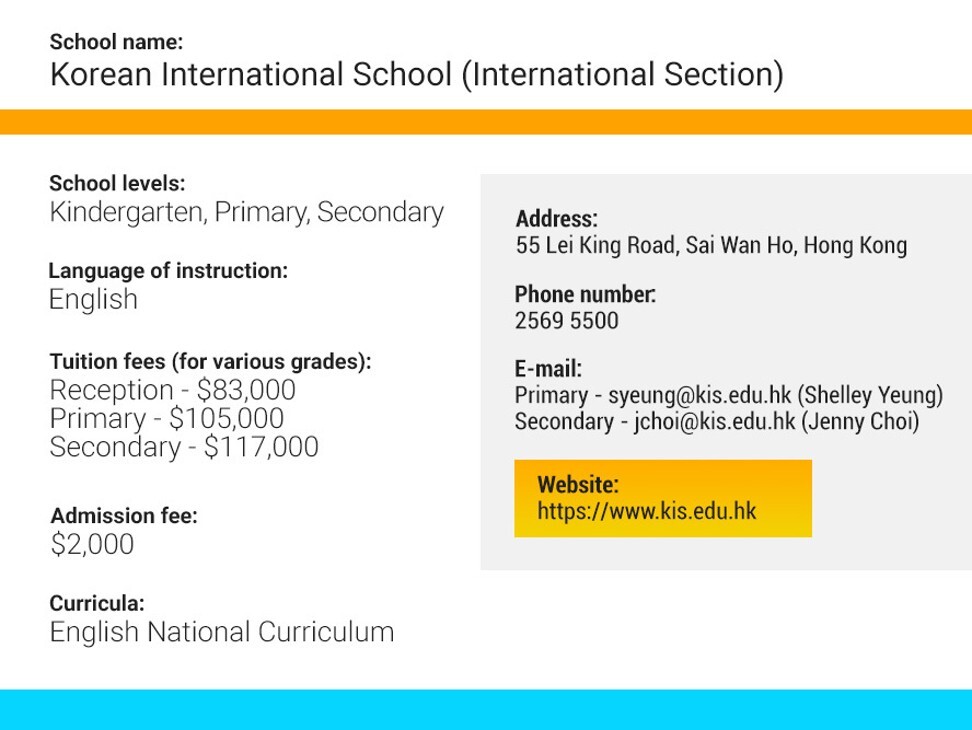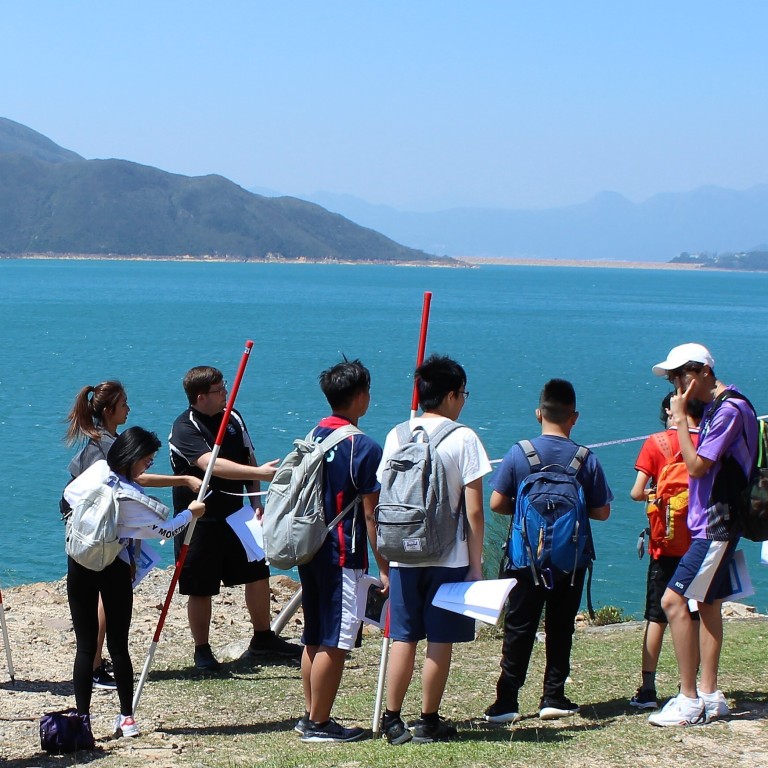
How can learning beyond the classroom nurture children to become more well-rounded?
- Korean International School’s primary pupils learn through theme-based integrated curriculum and secondary students carry out social studies fieldwork
- Experiential and engaging outside-the-textbook activities – in use before Covid-19 – encourage children to gain different perspective and transferable skills
[Sponsored article]
The Covid-19 pandemic has proved that learning does not need to be confined to classrooms and limited to textbooks.
However, even before the outbreak of the coronavirus disease, Covid-19, schools – particularly the Korean International School (KIS), in Sai Wan Ho, on Hong Kong Island, which offers a through-train British curriculum, English medium education from reception (aged four to five) to sixth form (Years 12 and 13) – have already been adopting unorthodox but highly effective learning programmes.
Drawing inspiration from successful teaching strategies that are used globally and backed by studies, KIS’ primary age pupils are given a theme-based integrated studies curriculum, incorporating a range of subjects, such as English, mathematics, science, history, geography and even physical education, so that each theme comes alive.
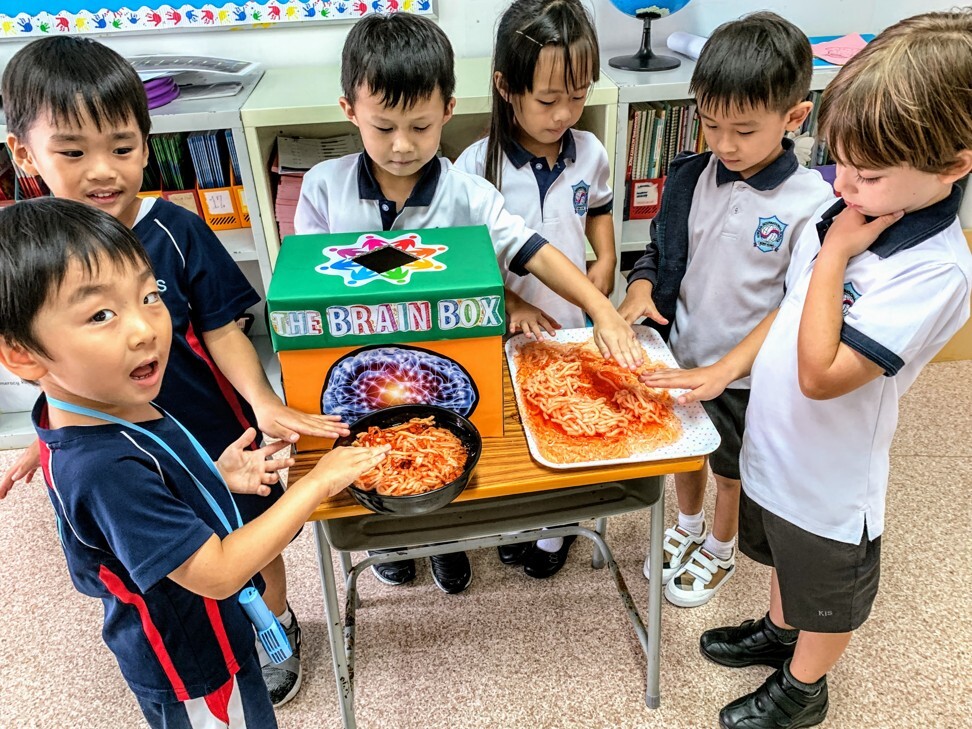
“Integrated learning offers pupils a very broad view of a topic, because we are not putting subjects into neat, rigid boxes,” Glenda Khoo, vice-principal and head of primary at KIS, says. “It also enables us to dive deeper into the semester’s theme.”
Benefits of theme-based approach
When the theme had been “holiday”, for example, pupils learned about the history of various modes of transport, expanded their vocabulary beyond English when they picked up greetings in a few different languages and discovered more about geography via Google Maps and Google Earth.
Other themes that have been rolled out by the school include “human body”, “life cycles” and “ancient Egypt”. When coming up with the themes, teachers are guided by the International Cambridge Curriculum.
At the secondary school level, students take part in social studies fieldwork – project-based learning where they go on various outdoor excursions and, based on the experience, are asked to interpret and answer open-ended questions to meet assessment criteria. These trips are often linked to multiple subjects such as biology, languages and the arts.
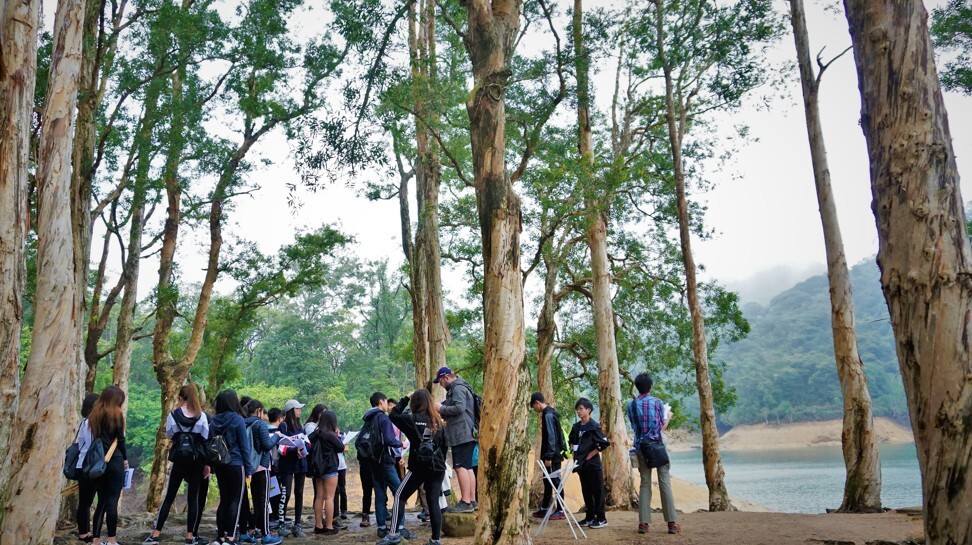
“The programme emphasises exposing students to new experiences, which enable them to connect with the real world, while developing their critical thinking and idea-expression skills,” Jeremy Green, KIS’ head of social studies department, says.
More than 60 field trips have been carried out since the social studies fieldwork programme was launched three years ago. These include a full-day 12km (7.5-mile) hike in Plover Cove Country Park, in the New Territories, leading to an old Hakka village, So Lo Pun.
They have also gone on a trip to Zen Organic Farm in Fanling, New Territories, to learn about environmentally friendly farming practices as part of their UK National Curriculum, National Geographic Learning Standards and multiple Cambridge International General Certificate of Secondary Education (IGCSE) syllabuses.

Khoo and Green say the goal of these learning approaches is to help students develop skills that will enable them to become well-rounded learners. KIS’ approach is already showing results – to the benefit of its young learners.
Interest energises organic learning
Studies show that interest is a powerful motivator, which energises learning, guides educational and career trajectories and is essential to academic success.
Teachers at KIS have seen the regular benefits of such a programme: its primary school pupils are more excited when they learn through themes.
“They are driven to want to do more research when they get home, even coming up with their own questions,” Khoo says. “They take more responsibility in their own learning.”
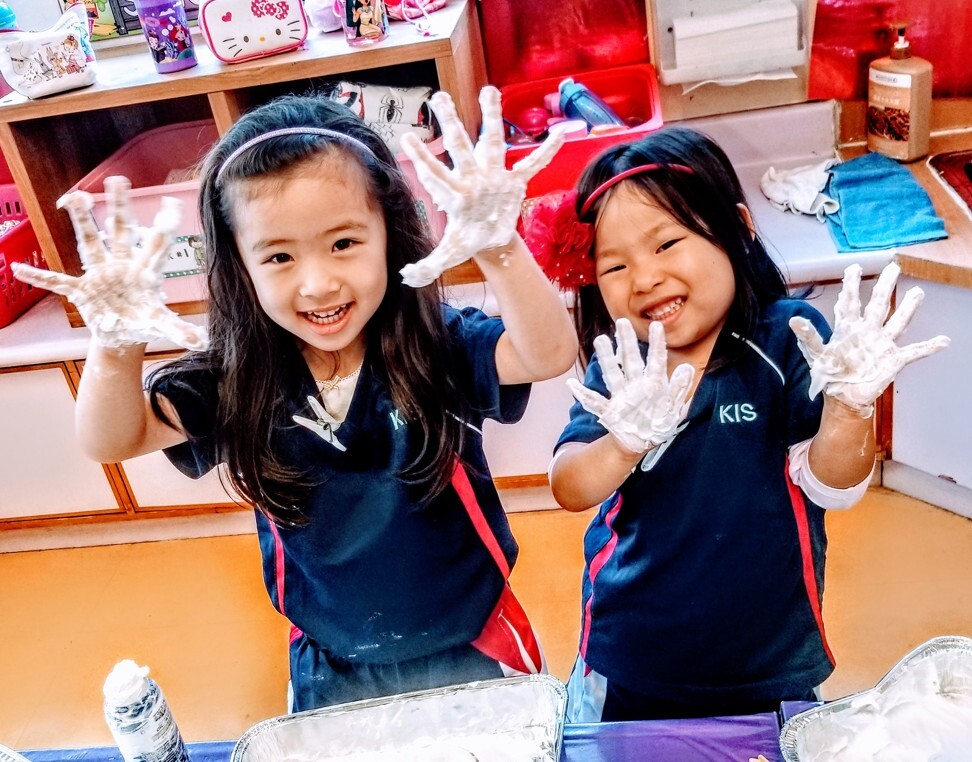
Green says he has noticed greater motivation among the secondary students carrying out the fieldwork, too.
“There’s a shift in the attitude in terms of enthusiasm,” he says. “The students get particularly excited, especially if it’s a big adventure, such as a long hike in the jungle or along a river. They also become more curious.”
Encourage creativity and independence
Curious learners tend to be more independent and creative. KIS’ fieldwork programme, for example, encourages students to think outside the box “by switching out traditional examinations and tests for a grading rubric that examines whether students were able to convey and articulate their ideas clearly through their projects”, Green says.
While this means students are free to show their creativity, it can also be challenging as there is no correct answer to the questions, so they are expected to back up their answers convincingly. They will discover that there is a range of thoughts and perceptions among their peers.
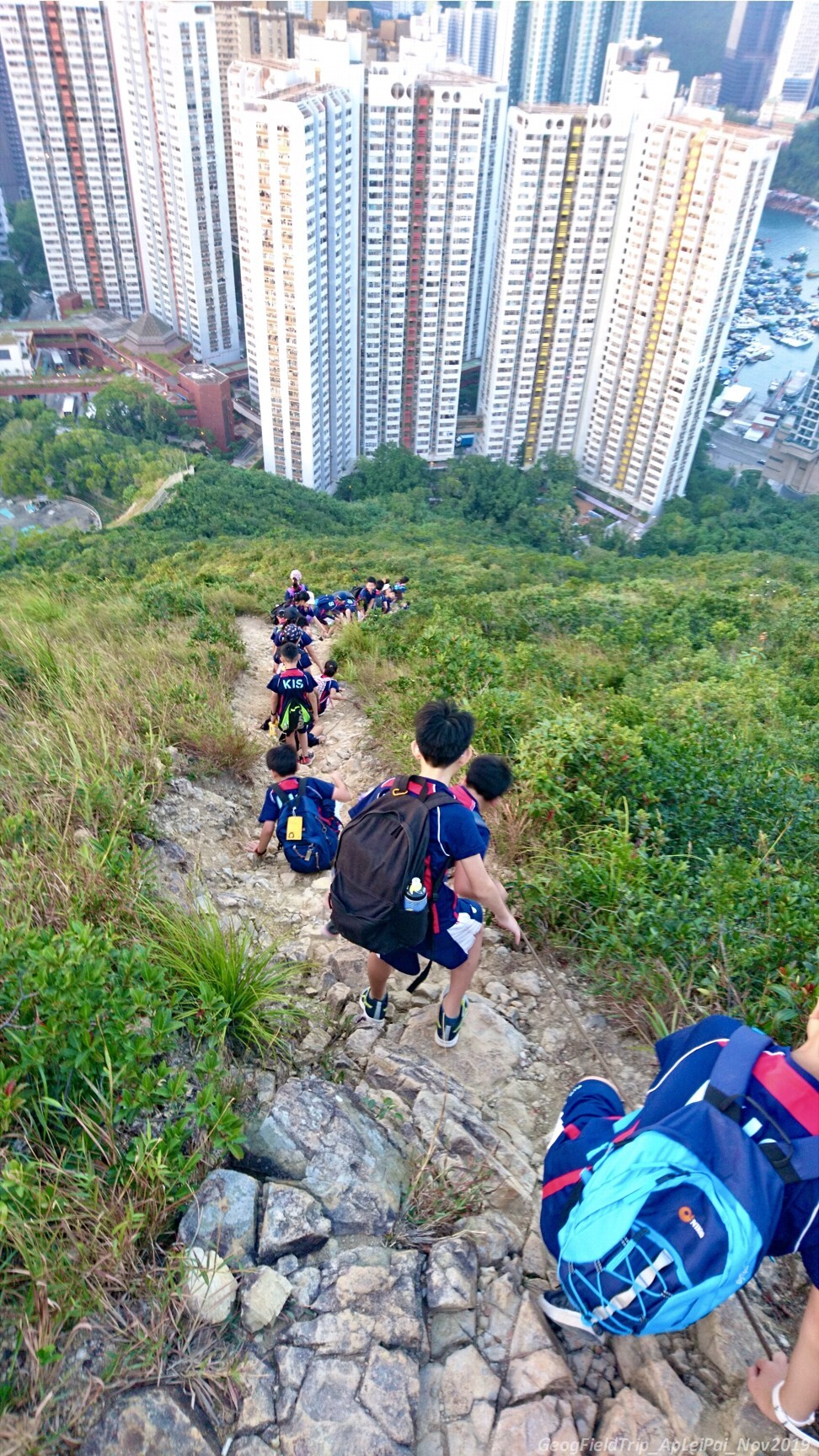
“The world is always changing, and each person’s understanding of why and how things are changing are going to be different,” Green says. “It’s important for our students to understand and be open to that. This prepares them for the future.”
Build bonds and team spirit
KIS’ learning approaches also enable young people to hone their communication skills and form stronger bonds with classmates, teachers and parents through their shared experiences.
Parents are often invited to be a part of the curriculum, for instance, by talking about their careers when these align with the semester’s theme.
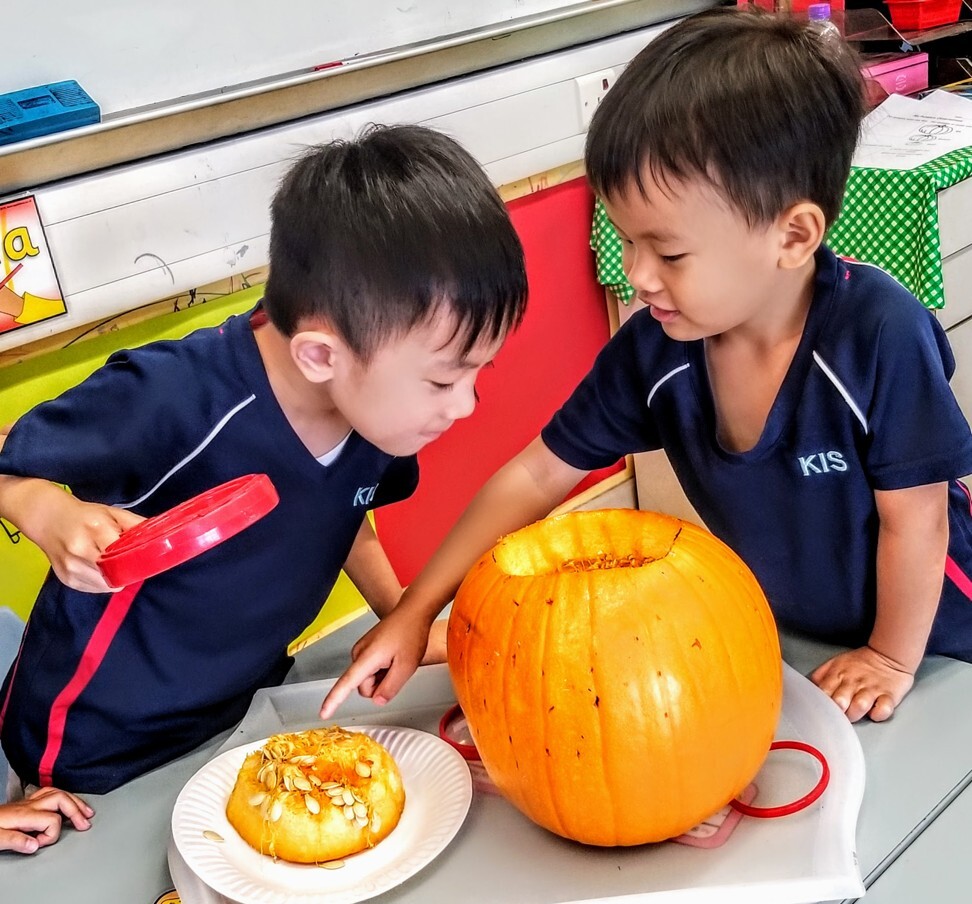
“This added a buzz for the pupils, who are able to talk and ask parents about their professions,” Khoo says. “It also helps pupils to connect their learning to the real world.”
This outside-the-textbook approach also offers opportunities for students to form stronger bonds with each other.
“The camaraderie I see when we’re out in the elements [while on fieldwork] is amazing,” Green says. “Students stay with their tired peers who need to take a break, lifting each other’s spirits by telling jokes and cheering each other on.
“They are motivated to conquer missions together, as a team, which helps build a sense of community.”
Admissions information
